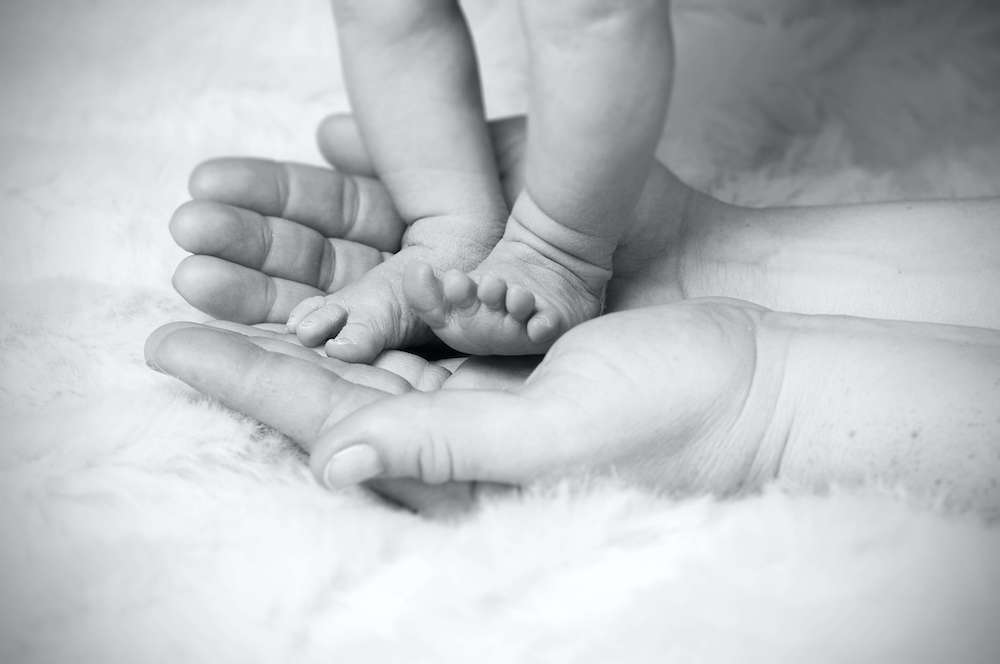Different Types of Birth Trauma: Tips from a Postpartum Therapist in Atlanta, GA
Welcome to my blog post about birth trauma and its lasting effects. If you’re a birthing partner who has experienced the painful physical or emotional aftermath of childbirth, I want to offer some understanding and support. At the same time, I want this post to provide valuable information for anyone concerned about their own experience or that of someone they care deeply about.
In this blog post, we will look at different types of birth trauma and explore helpful techniques from a qualified postpartum therapist. There needs to be more support and education regarding birth trauma so new parents recognize their symptoms and get the support they deserve.

Introducing Different Types of Birth Trauma
The arrival of a new baby is supposed to be a joyous and exciting time for parents. Unfortunately, for some families, the birth experience can be traumatic and have lasting effects. There are several different types of birth trauma that can occur during delivery. Including physical trauma to the infant or mother, as well as emotional trauma. Physical trauma can include injuries sustained during delivery, such as broken bones or nerve damage. Emotional trauma can occur when a mother experiences a difficult labor or delivery. Or if unexpected complications arise. It’s important for families to be aware of the different types of birth trauma and to seek support and treatment in postpartum therapy if they’re experiencing any related symptoms.
Physical Birth Trauma and Its Impact on the Body
The process of childbirth is often described as one of the most profound experiences a person can go through. However, what is not frequently discussed is the potential physical trauma that can occur during delivery and its lasting impact on the body. Physical birth trauma can take many forms, from tearing and injury to the pelvic floor to nerve damage and bruising.
These injuries not only cause immediate pain and discomfort. But can also lead to long-term issues such as incontinence, sexual dysfunction, and chronic pain. The impact of physical birth trauma is not to be underestimated. It is important to prioritize postpartum care to ensure that birthing partners receive the support and resources they need to recover and heal from these injuries. Please visit our resources page for a list of providers who provide postpartum support including pelvic floor physical therapists.

Emotional Birth Trauma and Its Impact on the Mind
Childbirth can be an overwhelming experience for anyone, but for some, it can leave an emotional imprint that lingers long after the arrival of their little one. Emotional birth trauma is a term used to describe the deep emotional distress experienced by birthing partners during childbirth. This can include feelings of powerlessness, helplessness, and fear, and can have a profound impact on their mental health.
The effects of emotional birth trauma on the mind can manifest in a variety of ways, from anxiety to depression. It is a very real phenomenon that deserves attention and support from healthcare professionals. New parents who have experienced emotional birth trauma should never suffer in silence, and there are resources available to help them process their feelings and heal from the trauma. Please visit our contact page to reach out to one of our therapists and get the support you deserve.
How to Recognize Signs of Birth Trauma in New Parents
Signs of birth trauma may include flashbacks, nightmares, mood swings, an increase in anxious or intrusive thoughts, difficulty sleeping while the baby is sleeping, and difficulty bonding with the baby. It is important for loved ones to be aware of these signs and to offer support and assistance to new parents who may be struggling. Seeking professional help, such as therapy for birth trauma, can also be beneficial for those experiencing birth trauma. Remember, it is important to prioritize the mental health and well-being of new parents during this vulnerable time.
Tips for Support After Experiencing Birth Trauma
Giving birth is a life-changing experience, but sometimes things don’t go as planned. Birth trauma is a very real experience for many new parents and can happen for a variety of reasons. It’s important for loved ones to be aware of these challenges and to provide the support needed during this difficult time. Whether it’s offering a listening ear, a comforting embrace, or helping with household tasks, every small gesture can make a big difference. Encouraging the new parent to seek professional support from a therapist or other healthcare professional can also be helpful. Remember, healing is a process and the road to recovery can be a long one. But with patience, compassion, and support, it’s possible to overcome birth trauma and move forward.

Resources and Postpartum Therapy to Heal From Birth Trauma
If you are struggling with birth trauma, know that there are resources and professional support available to help you heal and regain a sense of control. Seeking support from a licensed therapist, counselor, or peer support group can help you process and cope with difficult emotions. At Informed Therapy Group, we have therapists who specialize in postpartum therapy. We understand the importance of postpartum support and provide an inclusive, non-judgmental space for new parents. Our team of experienced therapists specializes in treating a variety of issues related to parenthood. Interested in finding a support group? Postpartum Support International has some wonderful free groups for new parents. Remember, you are not alone, and there are people who want to help you through this challenging time.
As we continue bringing awareness to the topics of pregnancy and postpartum health, it’s essential that anyone affected by birth trauma isn’t excluded from the conversation. Together, let’s normalize speaking up about these issues so that new parents get the care they need now and for years to come.
Ready to Start Postpartum Therapy in Atlanta, GA?
Embark on a transformative journey towards healing and empowerment by embracing postpartum therapy. Break free from the shadows of birth trauma, as our compassionate postpartum therapists at Informed Therapy Group provide a safe space for you to process, understand, and navigate the complexities of your unique experience. Take the first step towards reclaiming your well-being—your path to healing begins with the courageous decision to seek support. Follow these three simple steps to get started:
- Contact Informed Therapy Group to schedule your complimentary consultation to see if Postpartum Therapy is right for you
- Begin meeting with a skilled postpartum therapist
- Start overcoming the shadows of birth trauma and begin healing!
Other Services Offered at Informed Therapy Group
At Informed Therapy Group we understand that you may be struggling and we want to help. In addition to providing postpartum therapy for new mothers, our online Georgia practice offers therapy for stress management, anxiety therapy, depression therapy, and therapy for grief and loss. We also specialize in couples therapy and pregnancy counseling. To learn more about Informed Therapy read About Us, FAQs, and our blog!


